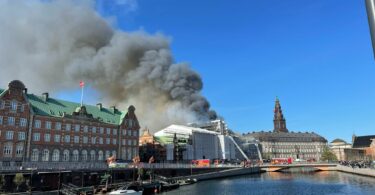MIAMI – We all watched as the Saudi Arabian writer Jamal Khashoggi, a columnist for The Washington Post, had his life brutally taken away by a government that puts violence before freedom of expression.

Khashoggi’s horrific and shocking murder early this month in the Saudi consulate in Istanbul means more than just an unjust government. It’s a representation of censorship.
As journalists, we should show support for everyone’s right to express themselves and to write about things that are happening around us.
My home country of Brazil experienced a dictatorship for about 20 years, starting in 1964.
We learned how having the media silenced is a threat to our democracy.
In those years, journalists were persecuted, tortured, and murdered.
Letters, songs, and movies were censored. Brazil had an entire government department devoted to censoring things.
When we finally installed democracy as the political system in Brazil, it was already the mid-1980s. Almost 40 years later, we currently have a candidate running for president who supported Brazil’s former military regime and possibly threatens our democracy.
That candidate, Jair Bolsonaro, has admitted that he is homophobic. He made sexist and racist comments on multiple occasions.
As journalists, we have a duty to report on injustices and threats to our community. Speaking up is important so we can be transparent and seek the justice for those in need.
My heart goes to Khashoggi’s family and friends. His work as a writer and journalist was not in vain. Even in death, he will continue to influence others.

Khashoggi’s life will inspire generations of young writers and journalists to address the causes that affect us. These new journalists will shine a light on intolerant regimes, which hopefully will hear our voices once and for all.
Like in my country, if it wasn’t for the media reporting on what was happening – if it wasn’t for the thousands of people marching on the streets fighting for a fair system – democracy would have never been installed and I wouldn’t have grown up in a country with freedom of speech.
Is with our individual actions as writers, journalists, and even as citizens that we make a change in our society. We cannot stop seeking the truth, fighting for all the voices to be heard or showing respect and kindness to one another.
Maria Luiza Lago is a Correspondent with Youth Journalism International.



